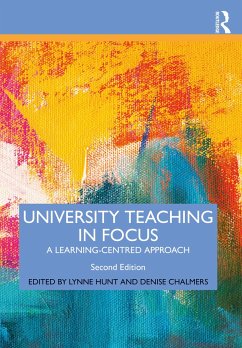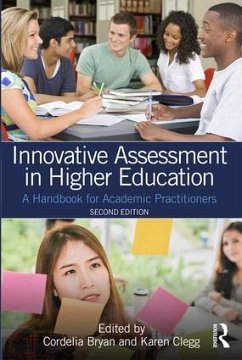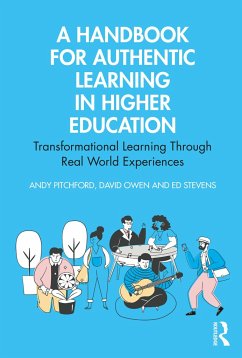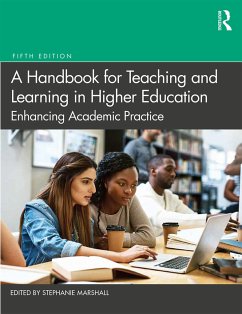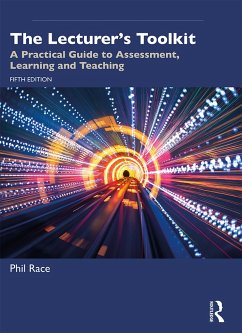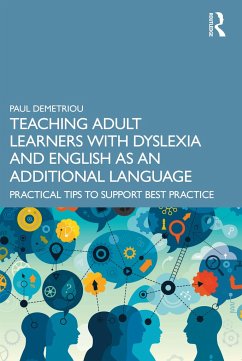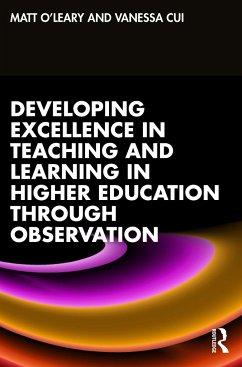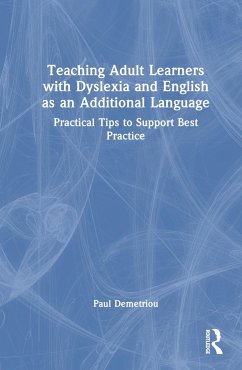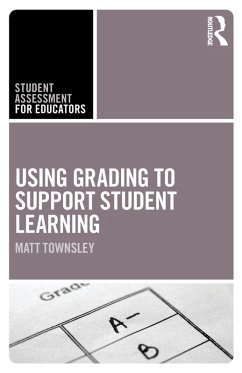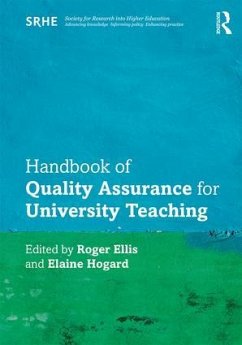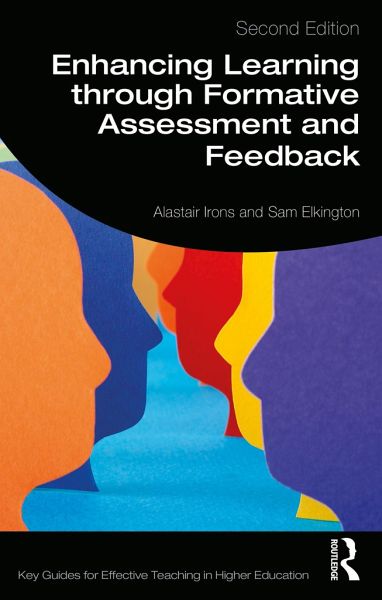
Enhancing Learning through Formative Assessment and Feedback
Versandkostenfrei!
Versandfertig in 6-10 Tagen
31,99 €
inkl. MwSt.
Weitere Ausgaben:

PAYBACK Punkte
16 °P sammeln!
Assessment is a critical aspect of higher education because it has a range of powerful impacts on what staff and students do and how universities operate. Underpinned by relevant theory and practical advice this fully updated new edition takes into account the changing expectation of students in the context of an increasingly complex and shifting higher education environment to promote the role of formative assessment and formative feedback and its impact on shaping the student learning experience.Presented through the lens of contemporary perspectives, empirical evidence, and case studies acr...
Assessment is a critical aspect of higher education because it has a range of powerful impacts on what staff and students do and how universities operate. Underpinned by relevant theory and practical advice this fully updated new edition takes into account the changing expectation of students in the context of an increasingly complex and shifting higher education environment to promote the role of formative assessment and formative feedback and its impact on shaping the student learning experience.
Presented through the lens of contemporary perspectives, empirical evidence, and case studies across a broad range of subject disciplines, this new edition aims to encourage teaching and support staff to focus on the promotion of student learning through designing and embedding high-impact formative assessment processes and activities. Key content covers:
the theoretical and philosophical aspects of formative assessment and formative feedback;
the learning environment in which students undertake their learning activities, helping teachers develop appropriate formative assessment and provide effective formative feedback;
the impact of formative assessment and formative feedback activities have on learning, teaching, and assessment design, as well as on the academic workload of tutors;
the contemporary issues and challenges currently driving research into formative assessment;
the use of technology in formative assessment and how different tools and technologies allow for the provision of effective and efficient formative feedback;
the benefits of understanding how students respond to formative assessment and formative feedback as an opportunity to review the effectiveness of the teaching and learning methods and techniques;
the integral role of formative assessment and formative feedback plays in postgraduate research settings; and
how innovations in formative assessment and feedback inform key developments in large-scale assessment change.
Aimed at both experienced and early career practitioners in higher education, this text is ideal reading for educators who wish to see a movement away from a higher education system driven by summative assessment to one where a more holistic approach to education positions learning standards rather than measurement and grades as central to effective assessment and, crucially, to return to a focus on student learners.
Presented through the lens of contemporary perspectives, empirical evidence, and case studies across a broad range of subject disciplines, this new edition aims to encourage teaching and support staff to focus on the promotion of student learning through designing and embedding high-impact formative assessment processes and activities. Key content covers:
the theoretical and philosophical aspects of formative assessment and formative feedback;
the learning environment in which students undertake their learning activities, helping teachers develop appropriate formative assessment and provide effective formative feedback;
the impact of formative assessment and formative feedback activities have on learning, teaching, and assessment design, as well as on the academic workload of tutors;
the contemporary issues and challenges currently driving research into formative assessment;
the use of technology in formative assessment and how different tools and technologies allow for the provision of effective and efficient formative feedback;
the benefits of understanding how students respond to formative assessment and formative feedback as an opportunity to review the effectiveness of the teaching and learning methods and techniques;
the integral role of formative assessment and formative feedback plays in postgraduate research settings; and
how innovations in formative assessment and feedback inform key developments in large-scale assessment change.
Aimed at both experienced and early career practitioners in higher education, this text is ideal reading for educators who wish to see a movement away from a higher education system driven by summative assessment to one where a more holistic approach to education positions learning standards rather than measurement and grades as central to effective assessment and, crucially, to return to a focus on student learners.





